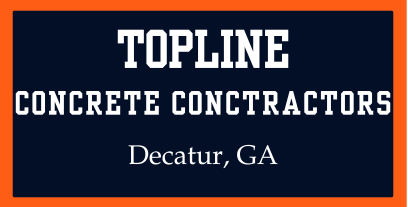
When you're considering hiring a concrete contractor, it's crucial to understand the various costs involved. Factors like project complexity, material quality, and your specific geographic location can greatly impact pricing. You might think you've got a handle on the basics, but hidden fees and unexpected expenses often catch homeowners off guard. As you start to gauge what your project might require, you'll want to explore how to set a realistic budget that accounts for these variables. So, what should you really keep in mind to guarantee your project's success?
Factors Influencing Costs
When considering the costs of hiring a concrete contractor, several key factors come into play that can considerably impact your budget.
First and foremost, the contractor's reputation is vital. A well-reviewed contractor might charge more, but their experience often translates into higher quality work and fewer costly mistakes. You'll want to research their past projects and read client testimonials to gauge reliability.
Next, consider the project timeline. If you need the work done quickly, you may face higher costs due to expedited services or overtime fees. A longer timeline might allow for more flexibility and potentially lower rates, but it could also delay your plans.
Additionally, be aware of the materials and techniques your chosen contractor uses. Premium materials can elevate the overall cost, but investing in quality can save you money in the long run by reducing maintenance needs.
Lastly, don't forget to factor in any permits or additional labor required for your specific project. Each of these elements plays a role in determining your overall expenses, so it pays to be informed and prepared.
Types of Concrete Projects
When it comes to concrete projects, you'll find a variety of options to evaluate.
Residential concrete installations, like driveways and patios, are popular choices for homeowners.
On the other hand, commercial concrete applications can range from large-scale foundations to decorative surfaces, catering to businesses and public spaces.
Residential Concrete Installations
Residential concrete installations encompass a variety of projects, each tailored to enhance your home's functionality and aesthetics. From driveways and patios to walkways and decorative surfaces, the options are numerous. You'll find that choosing the right installation techniques can greatly impact both durability and appearance.
For example, stamped concrete provides a stunning design option that mimics the look of stone or brick, giving your outdoor spaces a sophisticated touch. Alternatively, you might consider polished concrete for an ultra-modern interior finish that's not only stylish but also easy to maintain.
When planning your project, think about how different design options can complement your home's architecture. You could opt for colored concrete to add vibrancy or choose textures that enhance grip and safety in high-traffic areas.
It's crucial to consult with a professional concrete contractor who can guide you through the installation techniques best suited to your selected design options. They'll help guarantee the project meets your vision while adhering to industry standards.
Commercial Concrete Applications
Concrete isn't just for residential projects; it plays an essential role in various commercial applications that demand durability and functionality.
When you're considering commercial project types, you might think about warehouses, office buildings, parking lots, and industrial facilities. Each of these projects requires specific concrete solutions that can withstand heavy loads and environmental stresses.
When selecting a contractor for your commercial concrete needs, it's vital to establish clear contractor selection criteria. Look for experience in similar commercial project types, as well as a strong portfolio that demonstrates their ability to handle large-scale jobs.
You should also assess their knowledge of local building codes and regulations, guaranteeing they can navigate any compliance issues.
Don't forget to inquire about their use of quality materials and innovative techniques, which can greatly impact the longevity and performance of your concrete installations.
By carefully evaluating potential contractors based on these criteria, you can guarantee that your commercial project runs smoothly, stays within budget, and meets all of your functional requirements.
Material Costs Breakdown
When you're budgeting for your concrete project, it's essential to understand the breakdown of material costs.
Different types of concrete can vary greatly in price, and you'll also need to account for additional expenses like rebar or sealants.
Don't forget about delivery and handling fees, as these can add up quickly and impact your overall budget.
Concrete Type Pricing
Choosing the right type of concrete considerably impacts your project's overall cost. Different types of concrete come with varying price points, and understanding these can help you make an informed decision.
For instance, standard concrete is often the most affordable option, ideal for basic structures. On the other hand, decorative concrete, which includes stamped, stained, or polished finishes, tends to be pricier due to the added labor and materials required to achieve those aesthetic effects.
If you're looking for eco-friendly options, consider sustainable concrete mixes. These may contain recycled materials or utilize alternative methods that reduce carbon footprints. While they can be more expensive upfront, the long-term benefits to the environment might outweigh the initial costs.
When budgeting for your project, remember that the type of concrete you choose will also influence labor costs, as some installations are more complex than others.
Additional Material Expenses
Building a solid foundation for your project means considering all the material expenses involved. Beyond the concrete itself, you'll likely need reinforcement materials, which are essential for ensuring durability and strength. These can include rebar, wire mesh, or fiber additives, and the costs can add up depending on the size and type of your project.
You should also think about decorative options if you're aiming for an aesthetically pleasing finish. Decorative concrete can include stamped patterns, colored stains, or exposed aggregate, all of which can enhance the overall look of your project. While these options can elevate your space, they also come with additional costs that you'll want to factor into your budget.
When planning, be sure to consult with your contractor about these materials, as they can provide insight into what's necessary for your specific project and help you avoid overspending.
Delivery and Handling Fees
After accounting for material expenses, it's important to contemplate the delivery and handling fees that come with your concrete project.
These costs can greatly impact your overall budget, so understanding them is essential. Delivery logistics involve transporting concrete from the supplier to your project site, and factors like distance and the quantity of concrete can influence these fees.
For instance, if you're located far from the supplier or need a large volume, expect higher delivery charges. Additionally, some contractors may include additional fees for specific delivery requirements, such as scheduling deliveries during off-peak hours to avoid traffic.
Handling procedures also play a role in your costs. This includes the labor involved in unloading and placing the concrete at your site. If your project has limited access or requires specialized equipment, you might incur extra fees for the extra labor and machinery needed.
Ultimately, it's best to request a detailed breakdown of these fees upfront from your contractor. This way, you can avoid surprises and guarantee your project stays within budget.
Labor Expenses Overview
When hiring a concrete contractor, understanding labor expenses is essential for budgeting your project accurately. Labor costs can notably impact your overall expenses, and they often vary based on current labor market trends. For instance, if there's a high demand for concrete work in your area, you might see elevated rates.
Contractor qualifications also play an important role in determining labor expenses. Skilled and experienced contractors typically charge more, but their expertise can save you from costly mistakes down the line. It's important to balance the cost of hiring a qualified contractor with the potential benefits they bring, such as efficiency and quality workmanship.
When discussing rates, don't forget to ask about hourly wages versus project-based fees. Some contractors might offer competitive pricing due to their qualifications and efficiency, while others may charge more based on their reputation.
Always request multiple quotes to get a better understanding of the average labor costs in your area.
Project Complexity Considerations
Understanding your project's complexity is essential for accurately estimating costs and timelines. The project scope plays a vital role in determining how straightforward or intricate your concrete work will be. A simple driveway installation will differ greatly in complexity—and cost—from a decorative patio with custom design specifications.
When you outline your project, consider all elements involved. Are there unique shapes, patterns, or finishes you want? The more detailed your design specifications, the more time and skill your contractor will need to invest. This can lead to increased labor costs and extended timelines.
Furthermore, think about the site conditions. Will your contractor need to navigate obstacles like trees, slopes, or existing structures? Each of these factors adds layers of complexity that can affect both the cost and duration of your project.
To avoid surprises, be clear about your expectations and communicate openly with your contractor. Understanding the intricacies of your project scope will help you set realistic budgets and timelines, ensuring a smoother process from start to finish.
Taking these considerations into account can save you from unforeseen expenses and delays.
Geographic Location Impact
The location of your project greatly affects the overall cost of hiring a concrete contractor. Regional pricing can vary considerably, depending on where you're located.
In urban areas, you might find higher labor costs and material prices due to increased demand and living expenses. Contractors in cities often have to account for these factors, which can raise your overall project cost.
On the other hand, if you're in a rural area, you might benefit from lower prices, but keep in mind that the availability of skilled contractors may be limited. In rural settings, fewer contractors might lead to less competitive pricing, potentially increasing your costs.
Additionally, transportation costs can play a role. If your project site is far from a contractor's base, they may charge extra for travel time and fuel.
Ultimately, when considering your project's budget, think about how your geographic location influences both labor and material costs. Understanding these factors can help you make informed decisions and better plan your concrete project.
Additional Fees to Consider
Several additional fees can impact the total cost of hiring a concrete contractor.
First, be aware of hidden charges that may arise throughout the project. These can include unexpected costs that weren't discussed upfront, so it's crucial to clarify everything in advance.
Permit fees can also add to your expenses, as certain projects require permits from local authorities. Make sure to check what's necessary in your area.
Cleanup costs are another factor to take into account. After the job's done, you might be responsible for cleaning up the site, which can lead to extra charges if the contractor doesn't handle it.
Seasonal pricing can affect your project's cost as well; fees may vary depending on the time of year, with peak seasons often resulting in higher rates.
Budgeting Tips for Homeowners
When planning your concrete project, it's important to set a realistic budget that accounts for all potential expenses. Start by getting multiple quotes from contractors to understand the market rates. This'll help you gauge a ballpark figure for your project.
Next, think about cost-saving strategies. Consider doing some prep work yourself, like clearing the area or gathering materials, which can greatly lower labor costs. You might also look into bulk purchasing for materials, as many suppliers offer discounts for larger orders.
Don't forget about project financing. If your budget's tight, some contractors offer payment plans or financing options. This can ease the immediate financial burden and allow you to manage your payments over time. Additionally, you can explore loans specifically for home improvement projects.
Lastly, always set aside a contingency fund—typically 10-20% of your total budget. This'll help cover any unexpected expenses that might arise during the project.
With careful planning and these budgeting tips, you'll be well on your way to a successful concrete project without breaking the bank.
Frequently Asked Questions
How Do I Choose the Right Concrete Contractor for My Project?
To choose the right concrete contractor for your project, evaluate their qualifications and experience. Review their project portfolio to assess previous work quality, ensuring their style aligns with your vision and needs.
What Insurance Should My Concrete Contractor Have?
When hiring a concrete contractor, guarantee they've liability coverage to protect against property damage and worker's compensation to cover any injuries on the job. You want peace of mind throughout your project's duration.
Can I Negotiate the Cost With My Contractor?
Yes, you can negotiate the cost with your contractor. Use negotiation strategies like discussing project details and timelines. Many contractors show flexibility, especially if you're offering a larger project or prompt payment.
What Payment Methods Do Concrete Contractors Typically Accept?
Concrete contractors typically accept various payment options, including cash, checks, and credit cards. Make sure to clarify their preferred methods before starting the project to avoid any surprises with contractor fees down the line.
How Long Does a Typical Concrete Project Take to Complete?
A typical concrete project usually takes a few days to a couple of weeks. However, project duration can vary based on factors like weather impact, which might delay your timeline unexpectedly. Plan accordingly to avoid setbacks.
Conclusion
In conclusion, understanding the costs of hiring a concrete contractor is essential for a successful project. By considering factors like project complexity, material quality, and your location, you can make informed decisions. Don't forget to account for additional fees and set a realistic budget, including a contingency fund for surprises. Getting multiple quotes will help you find the best value. With careful planning, you can guarantee your concrete project stays within budget and meets your expectations.





